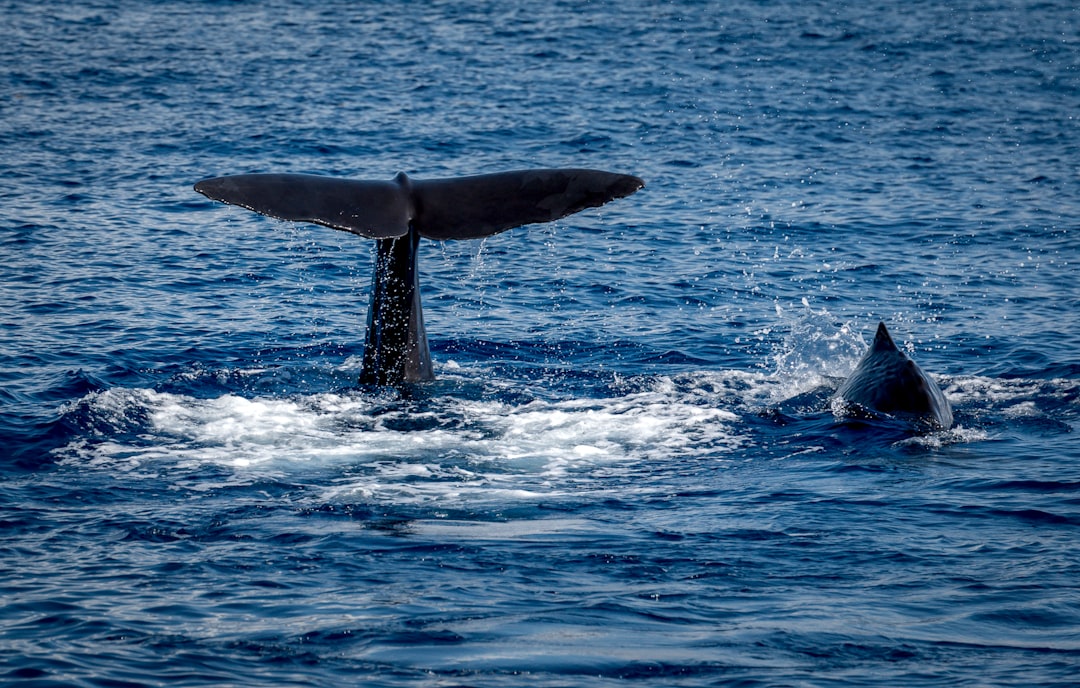Happy Friday!
Programming note: next week’s newsletter will be a special edition. So really savour the links in this one. And hello to everyone who subscribed after reading the Observer’s article on the best Substacks, which also contains some recommendations from me for other newsletters. Welcome to this community of more than 16,500 Bluestocking readers.
If you want to experience me in audio form this week, all episodes of Great Wives are now available on the BBC. This week’s Private Eye podcast, Page 94, sees us talk about Liz Truss’s plan to save the west, why Mohamed Fayed’s own lawyer hated him, and what the next architectural horror to befall Britain will be.
Helen

Can We Talk to Whales? (New Yorker)
The world’s largest predators, sperm whales spend most of their lives hunting. To find their prey—generally squid—in the darkness of the depths, they rely on echolocation. By means of a specialized organ in their heads, they generate streams of clicks that bounce off any solid (or semi-solid) object. Sperm whales also produce quick bursts of clicks, known as codas, which they exchange with one another. The exchanges seem to have the structure of conversation.
One day, Gruber was sitting in his office at the Radcliffe Institute, listening to a tape of sperm whales chatting, when another fellow at the institute, Shafi Goldwasser, happened by. Goldwasser, a Turing Award-winning computer scientist, was intrigued. At the time, she was organizing a seminar on machine learning, which was advancing in ways that would eventually lead to ChatGPT. Perhaps, Goldwasser mused, machine learning could be used to discover the meaning of the whales’ exchanges.
Excellent Elizabeth Kolbert longread about whether we might one day understand the clicks of sperm whales—or the “language” of any other animals.
Something that’s glanced at in this story, but which fans of Star Trek films will know well, is how influential the discovery of “whale song” was in helping conservation efforts. In a few decades, we went from hunting whales for blubber and oil to banning the practice everywhere (except Norway and Japan). Seeing whales as intelligent, communicative creatures clearly helped with that.
Will Anyone Ever Make Sense of Elon Musk? (The Atlantic)
[The Atlantic’s Damon] Beres: Is Elon Musk a dangerous person? Is that a word you would use?
[Elon Musk biographer Walter] Isaacson: There are things he does, especially with Twitter, that I think are really problematic. There are things he does that are actually quite helpful, including creating a world that’s moving toward electric vehicles when the other car companies in the early 2000s had given up on that. This is a person with multiple moods and modes and personalities, ranging from engineering mode to demon mode. At times, he can be reckless and even dangerous. And at times, he can do some pretty amazing things.
There are really three great innovators of our time. One is Steve Jobs, who brings us into the digital age of friendly personal computers and smartphones and music. There’s Jennifer Doudna, who brings us into the age of editing our own genes. And to some extent, Musk, who may bring us into an era of electric vehicles and space adventures. In the case of Musk, it’s not as pretty of a sight as it is for the other two.
A conversation with Walter Isaacson, who has written biographies of all three people named here. Is it coincidence that the only woman is also the least famous and mythologised?
The TL;DR on revelations from this new Musk biography—reviewed cruelly but amusingly by Gary Shteyngart in the Guardian—seem to be 1) that Musk and Grimes secretly had a third child using a surrogate, called Tau Techno Mechanicus, whom Grimes has since suggested that she hasn’t been allowed to see; and 2) that Russia successfully spooked Musk into refusing access to his Starlink satellites to the Ukrainians (who are US allies) for a crucial mission, because he believed it would escalate the war.
That second one might have grand consequences: is the US government prepared to have an eccentric private citizen in control of critical infrastructure? (Musk has already agreed to spin off part of Starlink to operate under defence procurement rules.)
The Other Naomi (The Atlantic)
At one point, Klein finds herself listening to hours of War Room, hosted by a man who has built a dark empire of profitable half-truths. Why does Klein find Bannon so compelling? Here Doppelganger takes a startling turn. The answer is that, quite simply, game recognizes game. Klein’s cohort on the left attacks Big Pharma profits, worries about “surveillance capitalism,” and sees Davos and the G7 as a cozy cabal exploiting the poor.
Understandably, she hears Other Naomi talk with Bannon about vaccine manufacturers’ profits, rail against Big Tech’s power to control us, and make the case that Klaus Schwab of the World Economic Forum has untold secret power, and she can’t help noting some underlying similarities. When Bannon criticizes MSNBC and CNN for running shows sponsored by Pfizer, telling his audience that this is evidence of rule “by the wealthy, for the wealthy, against you,” Klein writes, “it strikes me that he sounds like Noam Chomsky. Or Chris Smalls, the Amazon Labor Union leader known for his eat the rich jacket. Or, for that matter, me.”
I reviewed Naomi Klein’s book about not being Naomi Wolf.
Quick Links
“She once saw flying eels swooping down over her head in the middle of a race. Another time she saw a circle of bears hugging.” The best female ultra-runner in the world is Courtney Dauwalter: an exceptional athlete who nonetheless eats a lot of nachos. (Actually, she might be the world’s best ultrarunner, full stop; at extreme distances, the sex difference in performance narrows or disappears. Jonathan says that beyond 50km, “it’s an eating race”). What can we learn from Dauwalter’s approach to pain? (The Ringer)
Animals by Frank O’Hara is the only poem Zadie Smith knows by heart.
“To turn the light on in many bathrooms, you need not find a lightswitch, but a little string hanging from the ceiling, which you pull. Nobody knows why.” I thought this was so you don’t electrocute yourself with wet hands but maybe I have been living a lie perpetuated by Big Bathroom String? Brian Klaas reflects on the weirdness of Britain.
I enjoyed Samantha Irby’s disgusting story of how her And Just Like That episode was commissioned (Substack).
What we think of as vanilla—sweet, bland—is a lie. Real vanilla rather than synthetic vanillan can taste “dark-sweet, of smoke and cherries; or earthy as chocolate and coffee; or buttery, or caramelly or plummy; or stung by the faintest numbing hint of anise.” (New York Times).
“If these measurements are accurate, Jesus was about 6 feet tall (1.82 m). (Many modern scholars believe it’s more likely that he was around 5 foot 5 inches tall (1.68m)).” Just call him the Short King of the Jews. I thoroughly enjoyed this short history of measurement (Garden of Forking Paths).
“He wouldn’t tell me her name, and the campaign declined to make her available to chat, even off the record. Technically I can’t verify that she exists, except to note that for a presidential campaign to essentially reverse-catfish America would be insane.” South Carolina Senator Tim Scott is running for the the Republican presidential nomination, but has been dogged by suggestions that he’s secretly gay or “weird about women”. No, he says, he has got a girlfriend, but she goes to another district (Washington Post)
See you next time! Thanks to Ryan for the tip about the whales, and if you know something you think should be in the newsletter, just hit reply.





> I thought this was so you don’t electrocute yourself with wet hands
> but maybe I have been living a lie perpetuated by Big Bathroom String?
That's right. Though standard switches are not quite banned in bathrooms, they are... oooh, *sucks teeth and shakes head*. You can have standard switches just outside the bathroom, presumably on the grounds that anyone gymnastic enough to get their wet paws on the switch while still having a leg inside the bath, is beyond all standards-based help.
This is also why standard plug sockets aren't allowed, unless they're at least three metres away from the bath, and thus why some places have shaver sockets instead (which are almost the same as European standard plugs, but (natch) different to the electrical twitcher's eye).
All of which is of course a lead-up to the knobbly magnificence of the UK plug. Disproportionately long earth pin? Yup. Partly insulated hot pins, so little exploratory fingers can't shock themselves? Yup. Deliberately stiff, so that children can't pull them out? Yes, and OK, this is also an arthritis problem (and yes, this is why our sockets have switches, though almost no-one else's has). Cable coming out of the bottom, precisely to frustrate anyone trying to pull the plug out with it? Devious! And this isn't even exhaustive.
There's probabaly some darkly traumatic story behind the committee that designed it, which clearly overdosed on bleak creativity to out-top each other imagining _aaaaall_ the clever ways folk could conspire to fry themselves with electrickery.
<https://www.youtube.com/watch?v=UEfP1OKKz_Q> is a little over the top, but I do feel that BS 1363 is sometimes underexploited as a source of Joy.
(Hmm: this marking isn't going to do itself...)
Re endurance events, there's an entertaining paper ‘Extreme events reveal an alimentary limit on sustained maximal human energy expenditure’ <https://doi.org/10.1126/sciadv.aaw0341>. It's about apparent limits on how much useful, expendable, energy the alimentary canal is able to extract from food.
For short periods (and an ultramarathon is the sprintiest type of activity they consider) it seems possible to expend much more than your resting output (obviously). But as the event gets longer, they detect an upper limit on what the human body can process. If I'm understanding them correctly (and I an not a biologist), there seems a fairly hard limit of 2.5 times the base metabolic rate. You can eat more calories than that, but you can't turn them into useful work over a long race. This partly meshes with the ‘it's an eating race’ remark.
And _the_ most hardcore, butch, endurance sport they studied? (Figs 1b and 3a are both of them truly lovely graphs) Pregnancy. Which seems to nestle just under the limit of what's humanly possible.